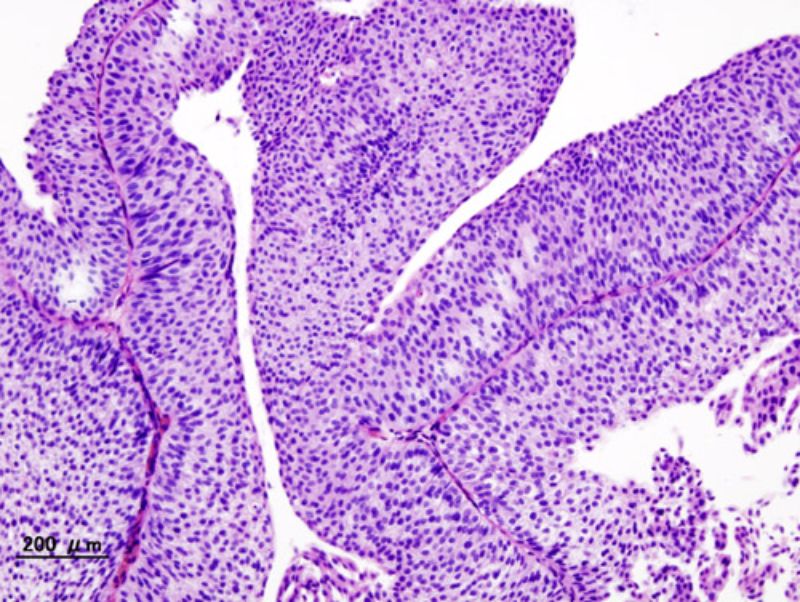
Merck (MSD) has reported results from the Phase III KEYNOTE-361 study of Keytruda in combination with chemotherapy as first-line treatment for patients with advanced or metastatic urothelial carcinoma (bladder cancer).
The trial did not meet its pre-specified co-primary endpoints of overall survival (OS) and progression-free survival (PFS) compared to standard of care chemotherapy.

Discover B2B Marketing That Performs
Combine business intelligence and editorial excellence to reach engaged professionals across 36 leading media platforms.
Final analysis showed an improvement in OS and PFS in patients on Keytruda and chemotherapy combination compared to chemotherapy alone, but did not meet statistical significance.
KEYNOTE-361 is a randomised, open-label, Phase III trial that assessed Keytruda as monotherapy and in combination with chemotherapy for the first-line therapy of advanced or metastatic urothelial carcinoma in a total of 1,010 participants.
The monotherapy arm was not formally analysed as the combination group failed to achieve superiority for OS or PFS.
The safety profile of Merck’s drug was consistent with previously reported studies, with no new safety signals observed.

US Tariffs are shifting - will you react or anticipate?
Don’t let policy changes catch you off guard. Stay proactive with real-time data and expert analysis.
By GlobalDataMerck Research Laboratories global clinical development senior vice-president and head Dr Roy Baynes said: “In this study, Keytruda in combination with chemotherapy in previously untreated patients with advanced or metastatic bladder cancer was rigorously tested against an active control of the current standard of care chemotherapy combination regimen.
“While we are disappointed in these study results, Keytruda has been established as an important option in the treatment of metastatic bladder cancer, and we are committed to continuing our research to help more patients with this disease.”
The drug holds three approvals from the US Food and Drug Administration (FDA) in bladder cancer indications across various types and stages of the cancer.
Merck is further assessing Keytruda as a monotherapy and combination therapy across several disease settings for bladder cancer.
In March this year, Merck reported that Keytruda improved progression-free survival (PFS) in relapsed or refractory classical Hodgkin lymphoma (cHL) patients involved in the Phase III KEYNOTE-204 clinical trial.





